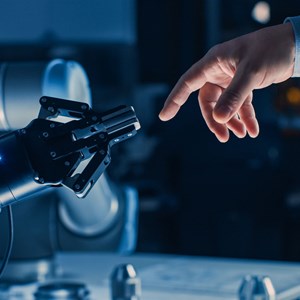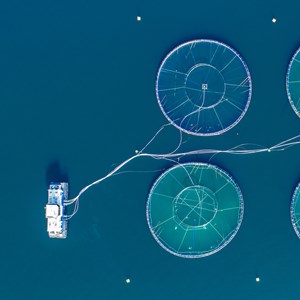NEWS

The Workshop will produce a CEN Workshop Agreement (CWA) which will define guidelines for a unified technological framework consisting of the integration of planning, perception, and communication in human-robot collaboration (HRC) systems.

Industrial processes are often energy-intensive and the need for their efficient decarbonization is now at the forefront of governmental and corporate policies worldwide. However, solutions for the green transition of the industrial sector should be flexible, widely applicable, and reliable. Two-thirds of industrial energy consumption is related to heating and cooling processes and is becoming a major environmental problem. The integration of renewable thermal energy sources at industrial sites is therefore crucial.

Although good catalysts for nODH of alkanes have already been provided, there is still a need of additional ones with high catalytic conversion, activity and selectivity, and/or with a catalytic conversion. The selection of certain metals in combination with other elements, all of them stabilized with particular organic compounds and adsorbed on porous supports, gave rise to highly active catalytic surface areas that, in addition, not only are selective for propene selectivity in nODH, but also are highly stable and free from the main drawbacks of other catalysts for the same reaction (i.e. coke formation, by-side deactivating reactions, etc.).

This CEN Workshop Agreement (CWA) provides orientation for the management of building retrofitting projects, based on enhanced shallow geothermal technologies, in form of guidelines for the classification of an integrated design team and the identification of the primary roles of actors among the whole project life-cycle.

The CEN Workshop (CEN/WS) will develop a CWA aimed to provide a user-centred summative and formative testing methodology for public sector bodies and agencies willing to measure the extent to which local public service delivery (including offline and online modes) empowers refugees and regular immigrants in the fulfilment of their integration goals and in so doing, ultimately enables a full exercise of their acknowledged citizenship rights.

The construction sector is one of the main drivers of EU’s economy. Despite major efforts in harmonising and standardization of qualification and training procedures across the EU, the competence level of sustainability experts and the underlying training and education contents varies significantly between the Member States.

The sheet metal forming sector faces a major challenge with respect manufacturing of metal sheet parts, represented by the lack of adequate test methods to assess sheet formability and part performance at the product design stage. This is essential to be able to develop high-performance parts at a reduced cost with new high strength materials, such as high strength steel (AHSS). Such high strength makes them processing sensitive, so forming parameters and sheet properties must be assessed to assure a zero-defect production and part quality, avoiding unexpected defects that cannot be predicted at the product design stage using traditional experimental or computational approaches.

The technical challenges that exist in the hatchery production of new and emerging Low Trophic Species (LTS) are significant, and to a large degree they are the same across species and sectors.

The European, as well as the global, B2B platform landscape is characterized by a high proliferation and fragmentation of diverse solutions with few signs of consolidation. Success of a B2B platform economy requires commercial platforms to be collaborative, simple, scalable, secure, and trusted.

This Workshop will produce a CEN Workshop Agreement (CWA), which will define quality criteria and guidelines for effective dual training (dual systems). The document aims at simplifying the dual training process for every kind of structure and it will include examples of best practices related to the different experiences of the CEN Workshop participants. It will also contain an annex addressing the need for code of conducts between host company and trainee and providing for additional examples, thus addressing another relevant aspect, which is the centrality of the person, seen not only as a resource and part of an economic mechanism.